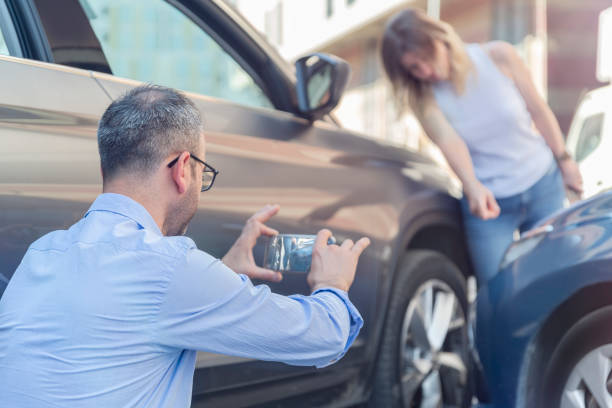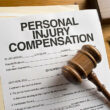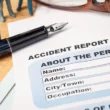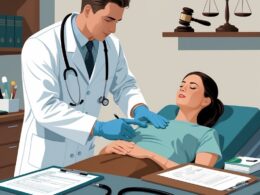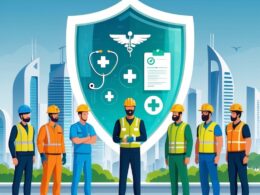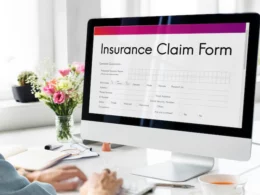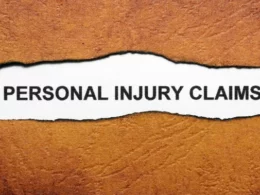If you have been injured in a non-fault accident, you may be entitled to compensation for your injuries. A non-fault accident is an accident that was caused by someone else’s negligence or wrongdoing, and you were not at fault for the accident. In these cases, you have the right to make a non-fault accident injury claim.
Non-fault accident injury claims are a way for you to seek compensation for the injuries you have suffered as a result of someone else’s actions.
This compensation can help you cover the costs of medical bills, lost wages, and other expenses related to your injury.
However, there’s more you need to know to fully understand what a non-fault accident claim is. This article will provide you with an easy-to-understand guide on a non-fault accident claim.
Understanding Non-Fault Accident Injury Claims
When you are involved in a car accident, it can be a stressful and overwhelming experience. If you were not at fault for the accident, you may be entitled to compensation for your injuries and damages. Here is what you need to know about non-fault accident injury claims.
What is a Non-Fault Accident?
A non-fault accident is an accident that was not caused by you. It means that you did not contribute to the accident in any way, and it was entirely the fault of the other driver.
In a non-fault accident, you can make a claim against the other driver’s insurance company for compensation for your injuries and damages.
Who is Responsible for a Non-Fault Accident?
In a non-fault accident, the other driver is responsible for the accident and your injuries and damages. They are liable for the costs associated with the accident, including medical bills, property damage, and pain and suffering.
What Damages Can You Claim in a Non-Fault Accident?
If you were injured in a non-fault accident, you may be entitled to compensation for a variety of damages, including medical bills, lost wages, property damage, and pain and suffering.
Your personal injury protection (PIP) coverage may cover some of these expenses, but you may also be able to make a liability claim against the other driver’s insurance policy to cover the remaining costs.
What is the Difference Between a Non-Fault Accident and an At-Fault Accident?
In an at-fault accident, the driver who caused the accident is responsible for the damages and injuries. In a non-fault accident, the other driver is responsible for the damages and injuries.
This means that in a non-fault accident, you can make a claim against the other driver’s insurance policy to cover your expenses, while in an at-fault accident, you may need to make a claim against your own insurance policy.
How Does Insurance Coverage Work in Non-Fault Accidents?
Insurance coverage works differently in non-fault accidents than in at-fault accidents. The other driver’s liability coverage may cover your damages and injuries in a non-fault accident.
If you have PIP coverage, it may cover some of your medical expenses, but you may also be able to make a liability claim against the other driver’s policy to cover the remaining costs.
What are No-Fault States, and How Do They Affect Non-Fault Accident Claims?
No-fault states are states where drivers are required to carry personal injury protection (PIP) coverage. Regardless of who caused the accident, each driver’s PIP coverage will pay for their medical expenses in these states.
However, if the injuries are severe, you may still be able to make a liability claim against the other driver’s policy. It is important to understand the laws in your state and how they affect your non-fault accident claim.
The Claim Process for Non-Fault Accidents
Now here are the detailed processes that you should follow for a non-fault accident.
What Steps Should You Take After a Non-Fault Accident?
After a non-fault accident, taking certain steps to protect yourself and your claim is important.
First and foremost, seek medical attention if necessary. Even if you don’t feel injured, getting checked out by a medical professional is always best.
Make sure to also gather information from the other driver, including their name, contact information, and insurance details.
Take photos of the damage to both vehicles and the accident scene, if possible. Finally, contact your insurance company to report the accident and start the claims process.
How to File a Non-Fault Accident Injury Claim
To file a non-fault accident injury claim, you will need to contact the at-fault driver’s insurance company.
Provide them with all the necessary information about the accident, including the police report, your medical bills, and any other relevant documentation.
Be sure to also file a claim with your own insurance company, especially if you have collision coverage or personal injury protection (PIP).
What Evidence Do You Need to Support Your Claim?
To support your non-fault accident injury claim, you will need to provide evidence of the other driver’s negligence or fault.
This can include witness statements, photos of the accident scene, and any other relevant documentation.
You will also need to provide documentation of your injuries and related expenses, such as medical bills, lost wages, and disability.
How to Deal with Insurance Adjusters
When dealing with insurance adjusters, it’s important, to be honest and forthcoming about the details of the accident and your injuries.
Nonetheless, it’s also important to be cautious about giving a recorded statement or accepting a settlement offer too quickly. Before accepting any settlement, make sure you have a clear understanding of the full extent of your injuries and related expenses.
You may also want to consider consulting with a personal injury attorney.
What Happens if the Other Driver is Uninsured?
If the other driver is uninsured or underinsured, you may still be able to recover compensation through your own insurance company.
Depending on your policy, you may have uninsured/underinsured motorist coverage that can help cover your expenses.
You may also be able to file a lawsuit against the other driver, although this can be a more complicated and time-consuming process.
Hiring a Personal Injury Lawyer for Your Non-Fault Accident Claim
One of the most important steps in a non-fault accident claim is to hire a good lawyer. Below are some tips to help you.
When Should You Consider Hiring a Personal Injury Lawyer?
If you have been involved in a non-fault accident and suffered injuries, you may need to hire a personal injury lawyer to help you file a claim and obtain compensation.
A personal injury lawyer can help you navigate the legal process, negotiate with insurance companies, and represent your interests in court if necessary. You should consider hiring a personal injury lawyer if:
- You suffered serious or long-term injuries
- Your medical bills are high
- You are unable to work due to your injuries
- You are experiencing emotional distress
- The insurance company is denying your claim or offering a low settlement
How to Choose the Right Personal Injury Lawyer
Choosing the right personal injury lawyer is crucial to the success of your non-fault accident injury claim. Here are some tips to help you choose the right lawyer:
- Look for a lawyer who specializes in personal injury and has experience handling cases similar to yours
- Check the lawyer’s credentials and reviews
- Ask for referrals from friends and family or other lawyers
- Consider the lawyer’s communication skills and availability
- Make sure you feel comfortable with the lawyer and trust their judgment
What to Expect During Your Initial Consultation
During your initial consultation with a personal injury lawyer, you can expect to discuss the details of your non-fault accident and your injuries.
The lawyer will evaluate your case and explain your legal options, the potential outcomes, and the fees and costs involved.
You should be prepared to provide the lawyer with any relevant documents, such as medical records, police reports, and insurance information.
How Much Does a Personal Injury Lawyer Cost?
Most personal injury lawyers work on a contingency fee basis, which means they only get paid if you win your case. The fee is usually a percentage of the settlement or award, typically between 33% and 40%.
You should discuss the fee structure with your lawyer during your initial consultation and make sure you understand all the costs involved.
How Long Will it Take to Settle Your Non-Fault Accident Injury Claim?
The length of time it takes to settle a non-fault accident injury claim depends on various factors, such as the complexity of the case, the severity of your injuries, and the willingness of the insurance company to negotiate a fair settlement. Some cases can be settled within a few months, while others may take years to resolve.
Your personal injury lawyer can give you a more accurate estimate based on the specifics of your case. Hiring a personal injury lawyer can greatly increase your chances of obtaining fair compensation for your non-fault accident injuries.
Ensure that you choose a lawyer who is experienced, knowledgeable, and trustworthy and who will represent your best interests throughout the legal process.
Conclusion
After a non-fault accident, it’s important to take the necessary steps to protect yourself and your rights. This includes seeking medical attention, reporting the accident to the police and your insurance company, and gathering evidence to support your claim.
If you’ve been injured in a non-fault accident, you may be entitled to compensation for your damages, including medical expenses, lost wages, and pain and suffering. However, navigating the claims process can be complex and overwhelming, especially if you’re dealing with injuries and other challenges.
Working with an experienced personal injury attorney can help ensure your rights are protected and you receive the compensation you deserve. Your attorney can help you understand your legal options, negotiate with insurance companies, and represent you in court if necessary.
Remember, prioritizing your health and well-being after an accident is the most important thing. Take the time you need to recover and seek the support you need to move forward. With the right help and guidance, you can get the compensation you deserve and confidently move on from your accident.
YOU SHOULD ALSO READ:






